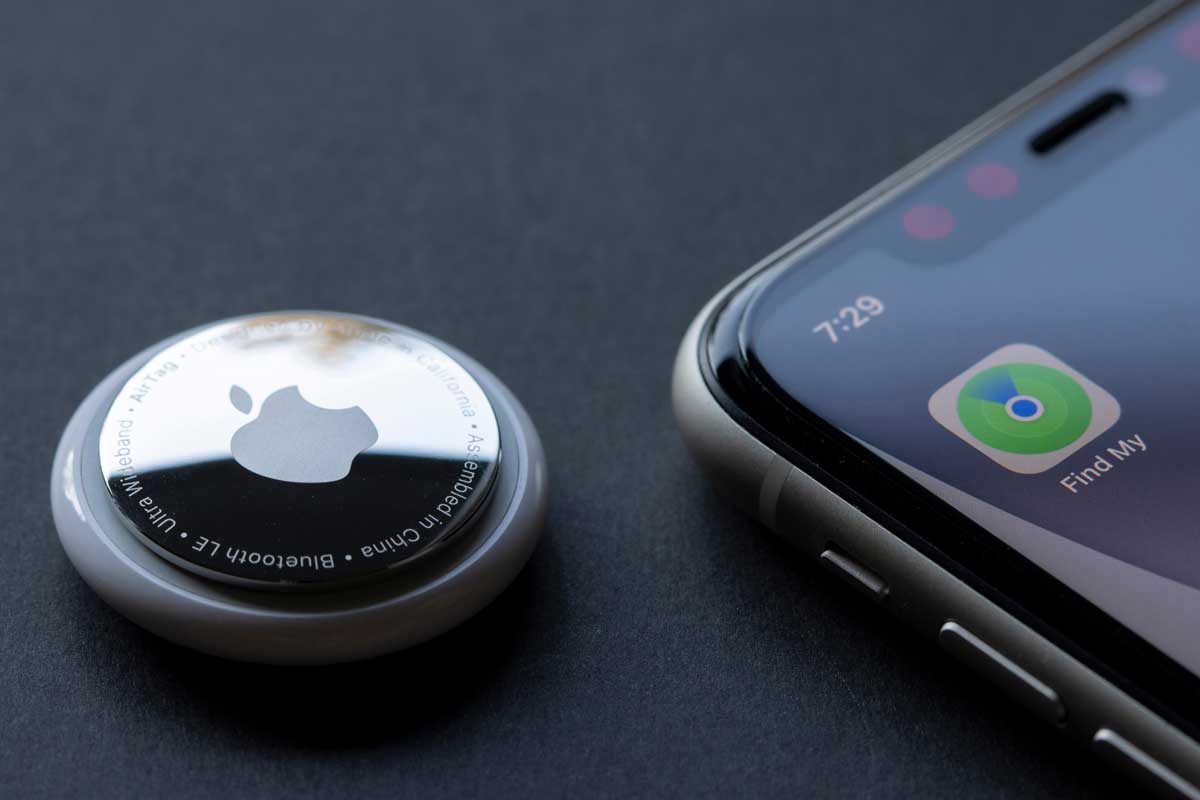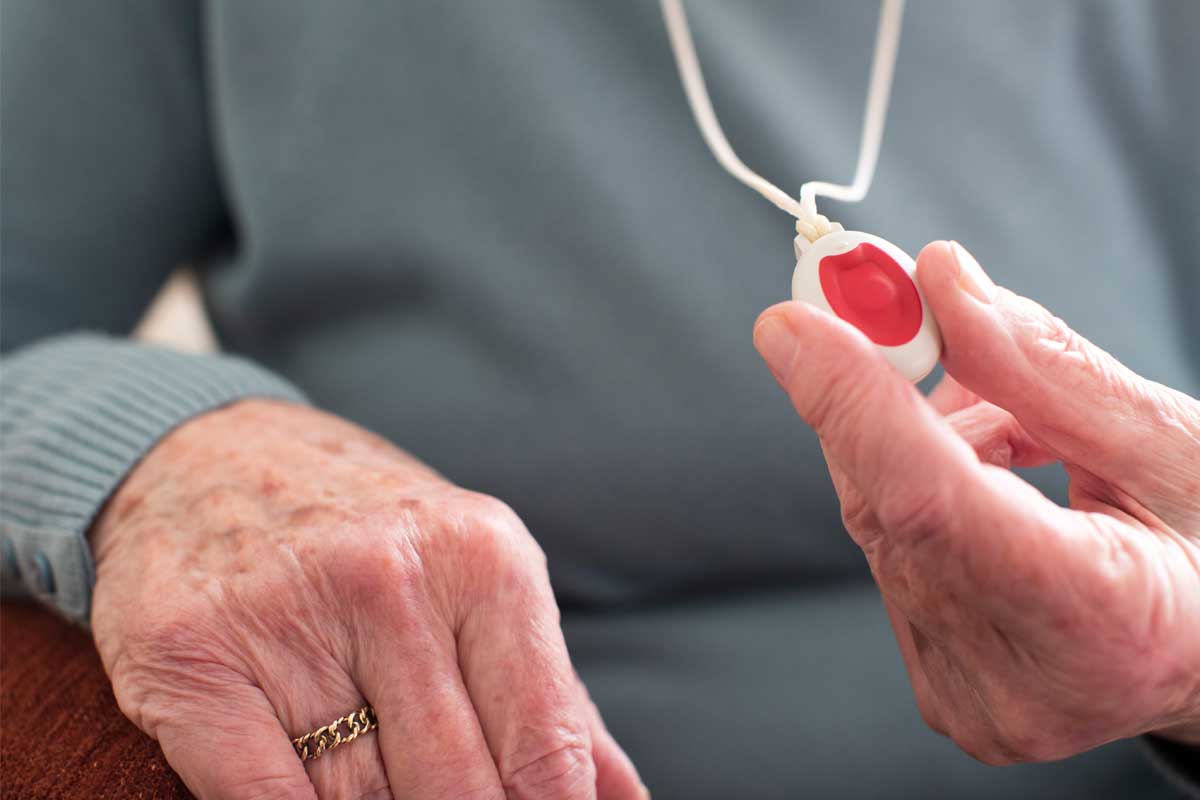July 21, 2022
As the ravages of dementia progress, it can become increasingly challenging for patients to remember basic things like where they are or how to get home. The danger of getting lost can be extremely frightening and worrisome for both the patients and their loved ones.
What used to take either 24/7 caretaker monitoring or a secured but confined environment to keep the patients safe, new wearable devices offered a more convenient and less intrusive option to reduce the risk of patients wandering off. As IoT technology continues to evolve, the wearable segment also begins to diverge. The location tracking functionality in many wearables can prolong the impaired person’s autonomy and independence while reducing their caregivers’ stress and anxiety.
Many types of dementia location devices and trackers are available on the market. Some can be worn as a pendant or bracelet, while others can be carried in a pocket or bag or even worn in shoes. Some wander preventatives can even be installed in the home, such as floor mat alarms or door sensors.
Portable location devices and trackers for dementia use signals (most often thru GPS, but also via Wi-Fi®, Bluetooth®, cell tower triangulation, or radio signal) to track the patient’s location. The device then forwards this information to a receiver, a smartphone computer app, or a standalone base station.
With so many options available, choosing the best device for your needs is very important. Some devices are more accurate than others, and some have additional features like two-way communication.
When shopping, there are a few things to keep in mind. First, consider the features that are important to you and your family. For example, if knowing the dementia sufferer’s exact location is paramount, then you’ll want to choose a device with location tracking.
One note: when researching tracking devices, it’s very important to consider the following:
It’s also important to consider the patient’s lifestyle when choosing a device. For example, if they’re likely to wander off and become lost, perhaps a more feature-rich tracker with real-time mapping and all-day monitoring may be necessary, like this product from AngelSense. Conversely, if they mostly stay within the home, a less robust, radio-powered device like this from Project Lifesaver may be all that’s needed.

Additional wearable options include location-tracking smartwatches that monitor movement, rate, sleep, and more; plus this rechargeable 4G SmartSole shoe insert that can track location, customize boundary zones, and send alerts via email or text. And if wearing a monitoring device isn’t possible? Pocket-sized devices like the PocketFinder Smart Tracker, the iTraq Nano, and the Apple AirTag are excellent choices for key-chains, wallets, or purses.
Finally, consult a doctor or dementia specialist before choosing a specific location device or tracker. They will be able to advise you on the best option for your loved one’s individual needs.
Portable location devices and trackers can provide many benefits for families dealing with dementia. First and foremost, they can offer caregivers peace of mind, knowing that their loved one is safe – which, in turn, reduces stress and anxiety.
Second, tracking devices can help provide dementia patients with a higher level of independence and confidence. This is of particular importance, especially in the condition’s earlier stages. As time passes and patients begin to fear the unknown, trackers prove to be a great comfort for those who wander off or become confused.
Finally, location devices and trackers can help keep impaired patients active and engaged. By knowing their location, caregivers can ensure their patients get enough exercise, which is vital for physical and mental health.
One of the most important things to consider when choosing a location device or tracker for a loved one with dementia is the balance between autonomy, control, safety, and privacy.
People living with dementia can often feel like they’re losing control of their lives as the disease progresses. Location devices and trackers can help to give them a sense of autonomy and control by allowing them to be more independent. Unfortunately, there continues to be a lack of ethical consensus on the use of tracking devices for dementia patients. As a result, the decision of whether and when to use GPS tracking should be made at the time of diagnosis jointly between the patient, his/her family, and professional caregivers.

There are many promising developments to keep an eye on. Artificial intelligence (AI)-powered smart activity sensors are now available, like these from Canada’s AltumView. The company’s Sentinare (coined from “sentinel” and “care”) device detects and analyzes human activities, and can be used for both home health monitoring and telehealth. And unlike traditional c0ameras that transmit video data, Sentinare only transmits “stick-figure” information, protecting privacy.
Another potential solution is the use of location devices and trackers to help with medication compliance. Some products can already send reminders to patients when it’s time to take their medication. But in the future, these devices could also track whether or not the patient has actually taken their medication, and provide reminders if they haven’t.
For over a decade, Ambiq has been laser-focused on inventing and delivering the most revolutionary system on chip (SoC) solutions in the market. Ultra-low power SoCs from Ambiq® extend the processing capability and battery life in wireless devices and advanced wearables, enabling a more robust experience.
Through the advanced Subthreshold Power Optimized Technology (SPOT®) platform, Ambiq has helped many leading manufacturers worldwide create products that can operate for days, months, and sometimes years on a lithium battery or a single charge. Visit https://ambiq.com/wearables for more information.
Back